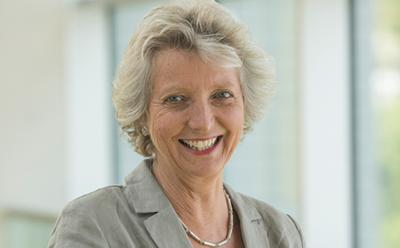Restorative neuroscience Professor becomes Association President

Jane Burridge, Head of the Neurorehabilitation Research Group at University of Southampton, has been elected as President of the Association of Chartered Physiotherapists in Neurology (ACPIN).
The ACPIN specialises in such complex conditions as Stroke, Parkinson’s, Multiple Sclerosis, Spinal Injury, Motor Neurone Disease and many more.
Professor Burridge is a Chartered Physiotherapist and also graduated from Guildhall School of Music and Drama. She previously worked as a neurological physiotherapist as well as a professional musician for 10 years, before gaining her PhD at the age of 48.
Professor Burridge said: “ACPIN is the organisation through which the impact of neurological physiotherapy are raised. My ambition as President is to achieve this through better education, research, recognition of our work and by raising the status of our profession.
The election, by the ACPIN, took place at the Queen Elizabeth Conference Centre opposite Westminster Abbey, where ACPIN is holding its 2017 Annual Conference.
This is close to where the attacks took place two days previously. Speaking immediately after a paralympian whose life was transformed by neuro-physiotherapy, and the professionals who coached and cared for her, Professor Burridge said that neurological physiotherapists were now more effective than ever before. Reasons for this included:
- discoveries in Neuroscience have enabled us to understand much more about neurological diseases, their progression and people’s recovery;
- technologies that provide powerful tools for therapy and assessment, and which can be used across the field of rehabilitation; and
- clear evidence now being assembled for new and established treatments.
Accordingly, ACPIN stands ready to work ever more closely with Governments, Health Commissioners, patient organisations and medical colleagues to ensure that improved outcomes and economic benefits are more widely and speedily available.
But leaders need ‘a seat at the table’ where budgets, strategies and healthcare pathways are debated and decided upon, across a wide range of neurological conditions, Professor Burridge stressed.